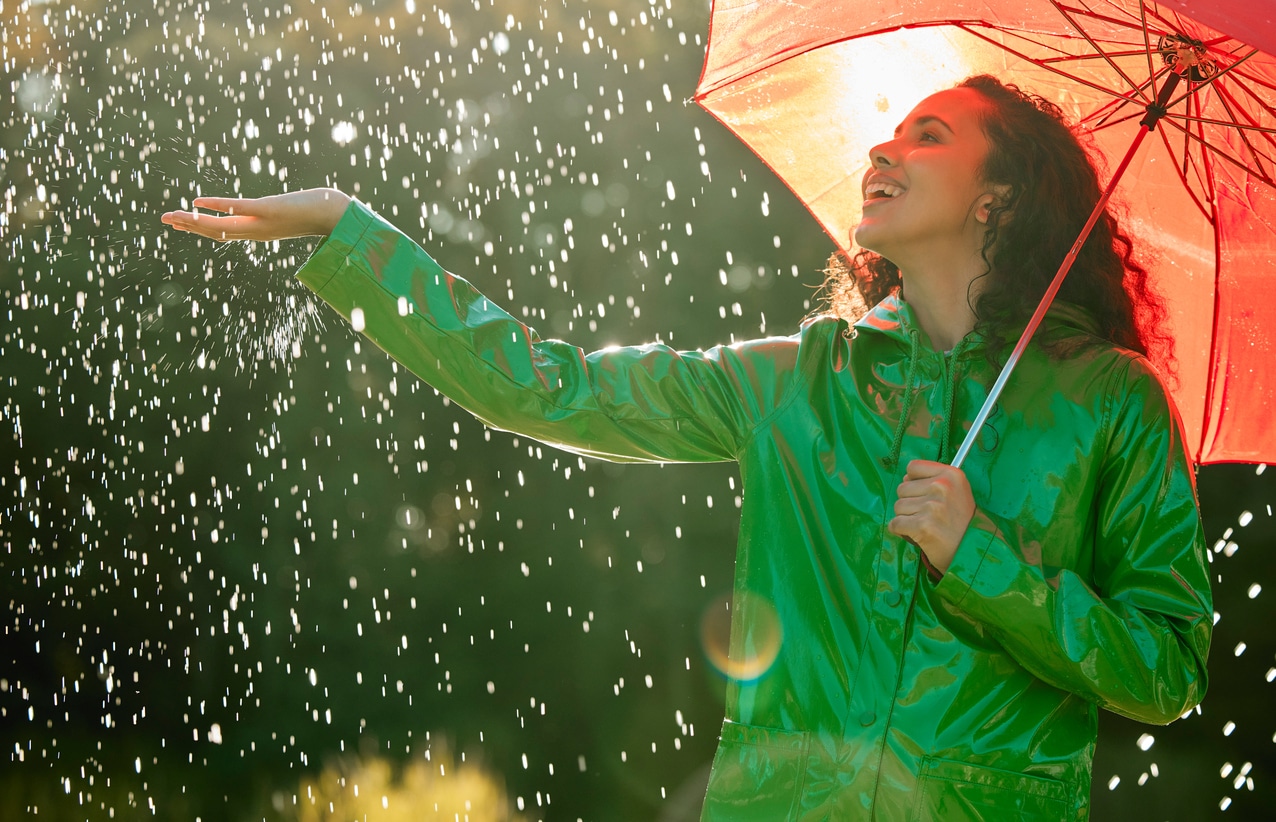Navigating life with hearing aids involves more than just enjoying the improved sound and clarity in your environment—it requires diligent care to protect and maintain these devices. With an estimated 28.8 million adults in the United States benefiting from hearing aids, the importance of these devices in improving communication and quality of life is undeniable. As we turn into the spring months and get ready for April showers, take some time to think about how to care for your devices during rainy days.
The Risks of Rain to Hearing Aids

Like any cherished electronic gadget, hearing aids are at risk of water damage. The scenario is all too familiar: a sudden downpour leads to the potential for corrosion and short-circuits, similar to when electronics are accidentally submerged in water. Though a few drops may not pose an immediate threat, the cumulative effect of moisture can be detrimental, making it crucial to adopt preventive measures against rain.
Strategies for Wet Weather
Facing the rain doesn’t mean compromising the integrity of your hearing aids. With a few simple strategies, you can shield your devices from moisture:
- Embrace rain gear. Umbrellas, raincoats and wide-brimmed hats are all excellent options for protecting your devices against the rain. If you start to feel your face or hair getting wet, that is the sign to pop on your rain gear and keep your devices dry.
- Stay secure with waterproof covers. Waterproof hearing aid covers are an excellent investment for those seeking an extra layer of protection. These handy covers ensure your hearing aids remain safe, even on the wettest days. Consider carrying a few covers in your bag or car to ensure you always have them when needed.
What to Do After Exposure
If your hearing aids get wet, immediate action is key to preventing lasting damage. Quickly dry your devices with a soft towel and let them rest in a drying box overnight. If you have a hearing aid dryer handy, remove the device battery and dry the insides of the battery compartment. If you’re concerned about the level of moisture exposure or experience a change in device performance, consulting with a specialist is a wise move.
Protecting your hearing aids from rain is an integral part of their care. By employing preventive measures and knowing how to respond to wet conditions, you can safeguard your devices against rainy days. To learn more about caring for your devices, contact [ company] today.